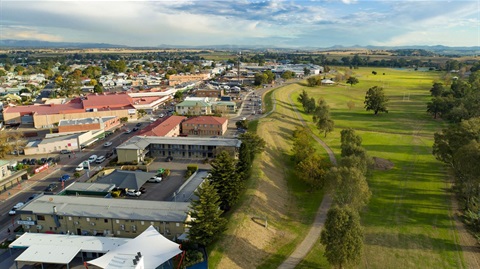UNESCO workshop targets Singleton in international collaboration
Published on 22 November 2022

Singleton’s Sustainability Strategy is being showcased to the world as part of a two-day workshop co-led by the UNESCO Chair for Intermediate Cities, Singleton Council and the University of Newcastle that wraps up today.
Singleton was chosen as one of only two Australian cities to host an iCities Workshop: Localising the Sustainable Development Goals (SDGs) towards transformative action in a two-day international collaboration.
Seventeen SDGs are at the heart of the 2030 Agenda for Sustainable Development adopted by all United Nations Member States in an urgent call for action by all countries in a global partnership.
The workshop, held at the new Singleton Arts + Cultural Centre yesterday and today, focuses on SDG 11 - Sustainable Cities and Communities and SDG 13 -Climate Action, drawing on the experience of Council staff, Councillors, government agencies, academics and community members to collectively verify how Singleton’s strategic plans meet the SDGs, and propose future planning and projects to deliver sustainable outcomes.
A detailed report and research paper on localising the SDGs in the Australian context will also be developed.
Singleton Council Director Infrastructure + Planning Justin Fitzpatrick-Barr said the workshop has been a fantastic opportunity to showcase Council’s Sustainability Strategy and actions to our local, regional and international community, reflect on our sustainability journey and plan for a sustainable future.
“From our Community Strategic Plan to on-the-ground programs to assist our community in sustainable living practices, sustainability is embedded in everything we do, and we’ve made significant achievements in this space,” he said.
“Having said that, the workshop will provide a detailed and in-depth analysis of how effective Council has been in incorporating and planning for a sustainable future, and provide key insights and opportunities to bridge identified gaps.
“The opportunity to analyse our natural, cultural and built environment as well as how we plan for and implement infrastructure development against the SDGs is one that Singleton could not pass up and I look forward to how we can incorporate the learnings from this workshop for the benefit of our community now and into the future.”
* UNESCO (the United Nations Educational, Scientific and Cultural Organisation) is a specialised agency of the United Nations aimed at promoting world peace and security through international cooperation in education, arts, sciences and culture.
ENDS